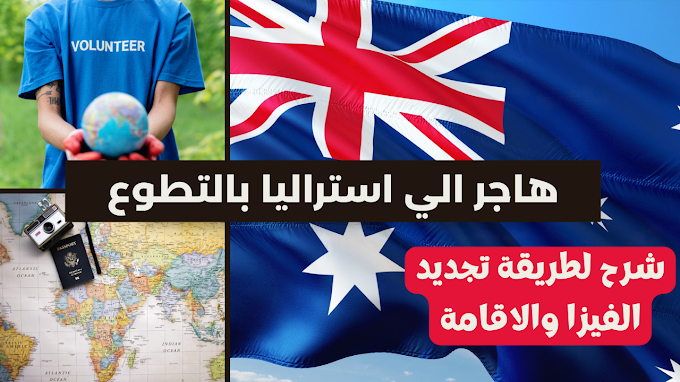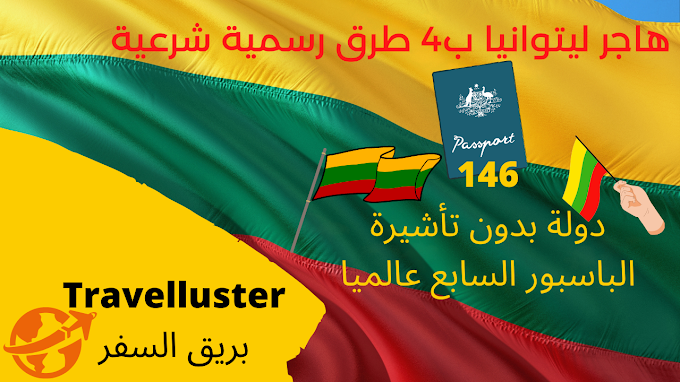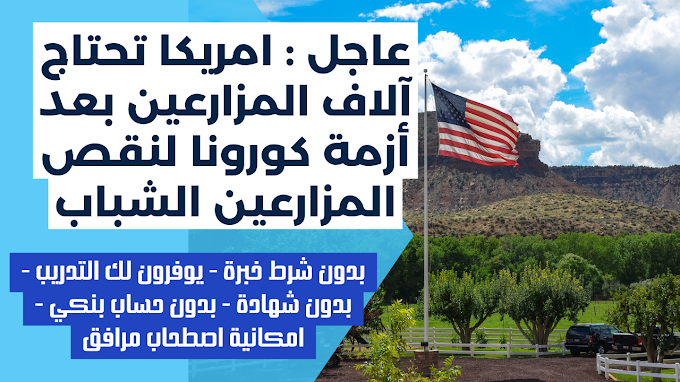Before I start my Egypt travel tips 10 things you need to know before you go, I would like to give you first an introduction about it all. Talking about Egypt leads to a greater appreciation of what it means to live in Egypt, when you are an Occidental. I have been to Egypt since 1988 and was privileged to live in very traditional Egyptian neighborhoods of the upper middle class (Garden City and Zamalek). I decided not to live, so it fell to me ‘right’ to be where I live, where other Americans live.
A new friend recently reinforced my feeling that when any of us go to Egypt something ‘happens’ – we know that we’re ‘coming home.’ Please recognize that if anything happens to you, you are not alone and enjoy it. The term ‘Egypt’ recalls pyramids, grand temples, giant monuments, mummies and the king’s gods, all remains of one of the world’s oldest cultures. It would be the ‘country of the Pharaohs’ for many to still be a site of agricultural development and advanced mathering. But almost 2,000 years ago, the Pharaohs’ long rule and great temples died.
Since the days when great temples and monuments were constructed to honor the king gods, life has changed and changed a lot in Egypt.
1-GEOGRAPHY AND NATURAL RESOURCES
On the extreme northeast side of the African continent, Egypt is situated. It is nearly 1,001,450 sq km, combined with Texas, Arkansas and Oklahoma (386,662 sq miles). Egypt offers the door to the vast Eurasia mass that links the African continent. It controls the Suez Canal and the Sinai Peninsula, which are geographically and economically significant. Egypt’s northern frontier lies in the Mediterranean Sea. The border with the Gaza Strip, Israel and the Red Sea is to the east; Sudan is to the south and Libya to the west of Egypt.
The Nile River Valley and delta is an enormous desert plateau in Egypt. It is almost entirely desert topographically, in the east and around the Nile, with rocky hills and mountains. About two-thirds of the country is in the west desert. In desert landscapes, the Sinai Peninsula and the Eastern Desert add six and 23%, respectively. As a result, the Arab Nile Valley and Delta constitute less than four percent of the total territory. Looking at it in this light, it is easy to see why Herodotus so appropriately noticed Egypt’s “gift of the Nile” in the 5th century BC.
2-RELIGION
I assume you are strongly doomed to never comprehend anything going on around you in Egypt if you do not understand the profound convictions of Islam and the essential effects of faith on the life and acts of all Egyptian people. I claim this regarding the fact that in Egypt there are six to seven million Coptic Christians. It is estimated that 94-96% of Egypt’s population is Muslim, which is why this critical part of life has a major impact on the government and everyday life of all Egyptians (as well as foreign residents).
The word Islam means ‘having peace with God’ or ‘submission to God’. A Muslim is an Islamist. Do not confuse Muslim with Arabic—this is not synonymous with Arabic. Muslims live anywhere on earth and may or may not be Arab. An Arab may be a Muslim, a Christian, a Jew, an athlete. For Heaven, Allah is Arabic. When people call on the name of Allah the following are commonly stated: “In Allah’s Name, the Merciful, the Charitable.” This is also how you can find so several letters or articles from the Islamic world are written in Arabic at the outset.
3-FAMILY
Life in Egypt revolves around the family and family interests are always more important than commercial ties. It would not be unusual for anyone to postpone a business meeting because there was greater priority in other pressing families. It seems like all Egyptians love girls and boys. In Egypt, one of the first things I saw was that kids were everywhere. There are few places in the public where children cannot be found. When women travel or buy, all children are brought with them, regardless of their age.
The mother traditionally has a great duty to ensure that children are well raised. Many people claim that fathers are not close to their children because of this. I also observed that fathers often keep young children fondly and are often publicly seen. As kids, fathers seem to be more closely connected with their children in terms of their careers and positions of duty but have a strong concern for all their children. Girls are closer to the position of their mother as they grow up. Moms remain a significant figure in the lives of their sons at all ages.
4-DATING AND MARRIAGE
The customs of courtship in Egypt vary considerably from the West. Young men and women have no opportunity, for instance in the United States or in the UK, to get to know one another. In general, only a small part of the high-class population undertakes anything which correlates loosely to what is called Western dating. Such partnerships are nevertheless usually linked to public events. Couples hardly waste their time single. Couples who are single obviously don’t live in Egypt together.
Certain young people participate as couples in discotheques, films, bars, social clubs and sports activities. Both wealth and social recognition seem to restrict access. People in these countries are typically educated, affluent and wear clothes in the western type. However, it is acceptable for young men and women to be out on a one-to-one basis only a very small number of Egyptians. The bulk of citizens of Egypt are frunned by Western-style dating ties. Such behavior is also seen as decadent and as a symptom of the spiritual decline of the West.
5-HOSPITALITY
‘Welcome! Welcome!’ You’ll hear this reassuring refrain in Egypt wherever you turn. In Egyptian life, hospitality is a keyword. Some of the customs of hospitality are uncertain in origins, but some have probably started in the desert. Often people in the desert gave strangers shelter and food, provided that they could be in need next time. It is now an ingrained tradition all over, no matter when it started. Accommodation takes multiple forms. Some of you would say that historically, regardless of the host expense, visitors should be invited for three days.
And if you do not have such a hospitality, you will still find some kind of traditional Egyptian hospitality. The way to sell tea in a shop might be that. It might also be the way to take children on their own to walk with you. You will be welcomed for dinner through a common style of hospitality. They may well spend what is exorbitant for you on a meal, even though this means that they will not be left with money for other items.
6-FRIENDSHIP
Most Western partnerships entail nothing in the way of the other person’s responsibility — a friend is just someone you want. In Egypt, being ‘mates’ is very distinct from being in the West. Like love, in Egypt, friendship quickly grows. There are apparently few grey areas—people are friends or outsiders. You might expect hospitality if you’re a visitor, but that’s it. You get a complex web of rights and obligations if you become a mate. Friendships need energy and continuous cultivation.
Westerners tend to regret to challenge mates about their benefits. Egyptian mates, on the other hand, expect to give you favors, and expect you to ask them. This is part of friendship’s duty. In your life in Egypt, what does this mean? Ok, if you don’t know how people expect you to make favors, you’ll probably be ‘feel exploited.’ You may only feel imposed, but Egyptian friendships may be far more serious than you do at home, in any case.
Only try to note that you really wouldn’t inquire if you weren’t a friend. Moreover, an offer for a favor sometimes will literally take the form of saying ‘I like’ or ‘I want’ to do something, go somewhere or get something. Believe it or not, the person should go, or have something that it is supposed to support (assuming it is a reasonable request). Simultaneously, the least clue from you always causes your Egyptian friends to reciprocate.
7-VISITING
The cornerstone of Egyptian social life is to see friends and family. Rather than “go” together or “do,” as is the usual Western tradition, the Egyptians are happy to meet for their sake. There seems to be little joy for Egyptians more than most people. In the other hand, international cultures also prefer to behave.
In this action-oriented socialization base, people usually take less time to work and doesn’t appear to yield positive results. So, with the thought of only living with other people, many foreigners have trouble. If you are used to seeing friends to ‘do,’ it can be disturbing if you pass over someone’s house for the afternoon or evening to do nothing. In addition, it should take several hours to return regularly. Visits never seem to last just 15-20 minutes (what might be considered to be a polite visit by some Western standards).
8-BAKSHEESH AND TIPPING
The Egyptians have a baksheesh and tipping, while Arabic dictionaries and books of tourist guides are generally associated with them. It is particularly difficult to differentiate between baksheesh and tipping around tourist areas. Complementing this is the fact that each locale knows what the guide books say. Technically, Baksheesh is a present or alms for the needy. Beggars of any generation come near you in Egypt and scream, “Baksheesh! Baksheesh!” At first, someone who appears to be very vulnerable and in need is difficult to turn down — particularly if he is a snapped, dirty little guy.
You can differentiate very easily from those sent out to hit any alien that arrives from others. Let your conscience be your guide for money, but note one thing: if you offer a guy, you will probably encounter several people around you who ask for money immediately. You should still offer anything to assist someone who is already handicapped — perhaps their only chance to help them.
Tipping is deemed to be acceptable and suitable for any minor service given, on the other hand. You’ve been offered something (a service) and you should react (a tip). Most people are kind enough if you don’t give them a hint when they consider it suitable, and only remember them with a palm up sign. You will even remind you of the term ‘tip’ in every language, if you speak your language. If not, the baksheesh can be used if you seem particularly unaware of what you intend.
9-GIFTS
Gifts are difficult. Gifts. It is difficult to know how to give presents and what to give. A variety of times, small gifts are needed. Take little presents for unique people you will encounter in Egypt when you go out to Egypt. Gifts need to be good, but don’t have to be very pricey. Such a thing would be very fitting if you came from a certain area renowned for a special commodity. I come from Texas, for example, so I normally take a lot of Texan donations from coffee tables to trivettes decorated for special holidays with Texas wild fowl.
Fine writing styles are a healthy gift for men still. It’s also a common tradition to take your hostess anything to be entertained at home. It’s customary in most parts of the United States and other Western countries to take flowers, but it certainly is better avoided in Egypt unless you know the hostess wants that.
Unfortunately, you certainly would not know the color protocol, floral variation or arrangement until you had gone for such a long time, and you might easily go on a stand of local flower and have a funeral arrangement as an arrangement for wedding or dinner. Sweets, sweets or sweets are a great bet. Most sweet-shops will pack your donation to your hostess in a box with a nice ribbon. Do not, of course, take or risk ruining something perishable.
10-COMPLIMENTS
It can be somewhat confusing in Egypt to praise someone on what they have or wear. Where in the United States, for example, it is common practice that someone should be careful in Egypt that he has a lovely collar or an annex or whatever. Why does this happen? Generosity is necessary to retain a positive image for a visitor. Therefore, if you are careful not to give you the object you admire, especially when it is a small mobile object, what is supposed to be merely a compliment of good food put your Egyptian hosts in an uncomfortable position to show their hospitality.
This is more or less the way it goes. Anything like, ‘OH, you’ve got a wonderful building.’ People won’t want to give you your house. However, if you mention anything like this, ‘This package is so lovely. I searched for only one like it everywhere, watch out. The person to whom you say this may feel compelled to propose it. You’d like to welcome and make you smile. Now suppose you didn’t “hint” that they gave you their treasure, you immediately feel bad when you know that they would sell your package with their inherent kindness.
Final thoughts:
You might find it odd if your plane does not reach an entrance at the terminal if you’re not used to flying in the Middle East. Some of them do, some of them do not. The aircraft will also park and passengers will land on the tarmac from a distant location. Busses come to the airport to carry passengers. You are in safe areas and waiting to go through customs until you are in the terminal.
You will be escorted to the customs area directly upon entry, to be checked and stamped on your passport and visa. After customs clearance, you can carry your baggage claim to another safe location. You must pass another check-point before you leave the baggage claim area before you enter Egypt. At this juncture, certain questions you put into the country will be questioned. Packs are scanned from time to time. Duty-free are personal and cameras, but products such as electronics and video cameras must be declared and specified in Form D.



































0 Comments